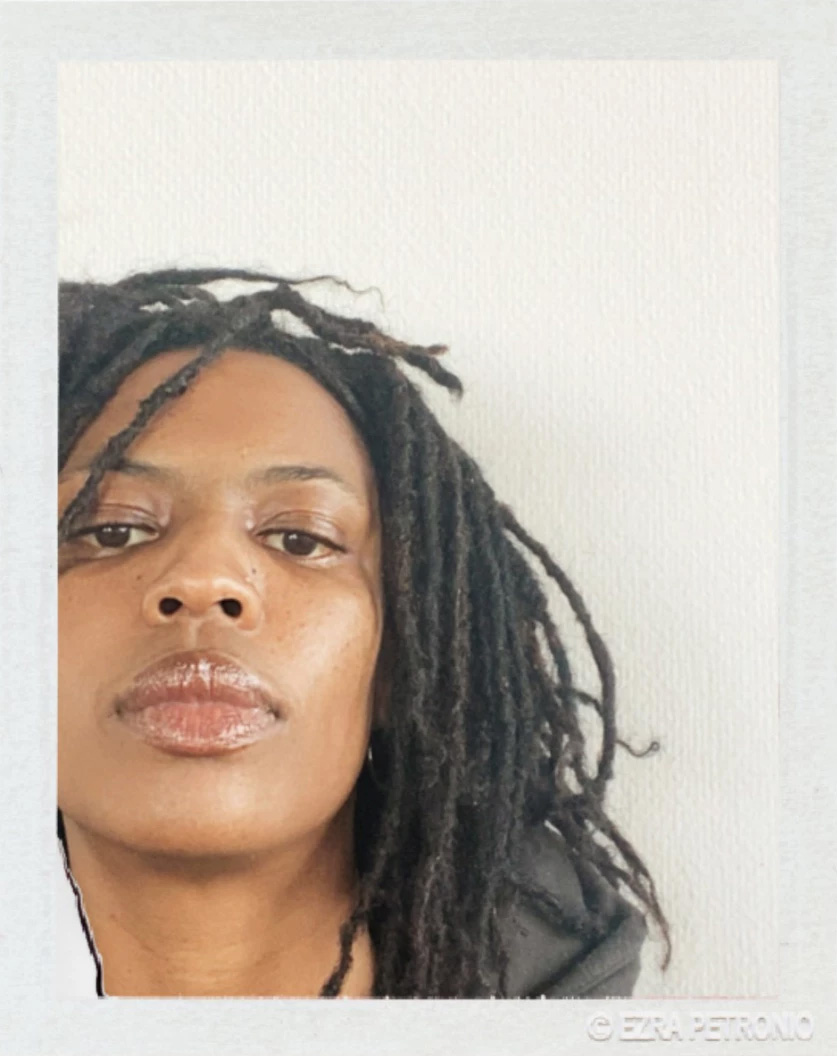
- Source: The Los Angeles Times
- Author: DEBORAH VANKINSTAFF
- Date: July 15, 2021
- Format: PRINT AND DIGITAL
Hammer Museum’s $100,000 Mohn Award
goes to Kandis Williams

Artist Kandis Williams, recipient of the Hammer Museum’s 2020 Mohn Award. (Ezra Petronio)
The Hammer Museum announced Thursday that L.A. artist Kandis Williams, co-founder of Cassandra Press and a visiting faculty member at the California Institute of the Arts, will receive the museum’s $100,000 Mohn Award for artistic excellence.
The museum also announced two other awards in conjunction with this year’s “Made in L.A. 2020: a version” biennial. The Career Achievement Award, for “brilliance and resilience,” will go to painter Monica Majoli; the Public Recognition Award will go to painter Fulton Leroy Washington, a.k.a. Mr. Wash. Both of those artists will receive $25,000 each.
The Mohn Award is funded by Jarl and Pamela Mohn. This year the philanthropists gave an additional $5.15 million to support future “Made in L.A.” exhibitions and the related Mohn Awards, as well as Hammer acquisitions of emerging or under-recognized artists, which the biennial spotlights. This year’s exhibition is presented at both the Hammer in Westwood and the Huntington Library, Art Museum, and Botanical Gardens in San Marino.
Williams’ work traverses collage, performance, assemblage, writing, publishing and curating. She co-founded Cassandra Press, a nonprofit “publishing and educational platform” in 2016 with artists Taylor Doran and Jordan Nassar. It puts out lo-fi pamphlets, presenting texts by Black critical theorists, and it offers artist zines, classes and exhibitions. Her densely layered collages on view at the Hammer puzzle together contemporary models and classical sculptures as she “conflates stills of classical beauty with death masks and mythology,” as the Hammer puts it. Large-scale collages on view at the Huntington address the history and classification of plant life through portraits of invasive species and adventurer-botanists.
L.A. painter Majoli often addresses homoeroticism and sexual fetishism in her work. Her “Blueboys” series, which she’s been developing since 2015, depicts centerfolds who appeared in the now-defunct gay lifestyle and porn magazine “Blueboy” from 1976 to 1979. Her delicate, pastel-hued watercolor woodcut transfers suggest imminent tragedy given that the AIDS epidemic was on the horizon at the time her subjects were photographed.
Compton-based Mr. Wash mastered the art of photorealistic portraiture while serving 21 years in prison for a nonviolent drug offense he says he did not commit. President Obama commuted his sentence in 2016. Paintings from his teardrop series, on view in the biennial, depict public figures such as Obama and Michael Jackson as well as fellow prison inmates, all with robust tears rolling down their cheeks. Tiny figures and narrative vignettes appear inside the teardrops.
The Mohn Award and Career Achievement Award recipients were selected by a jury of curators; the Public Recognition Award was chosen by visitors to the exhibition.
“Made in L.A. 2020: a version,” the fifth iteration of the biennial, closes Aug. 1. The exhibition, curated by Myriam Ben Salah and Lauren Mackler with the Hammer’s Ikechukwu Onyewuenyi, had an especially bumpy run, with its opening date in limbo for months due to the pandemic and artists retooling interactive pieces and performances in response to evolving public health guidelines. It sat, fully installed, inside museums shuttered to the public, before eventually opening in April.
“The last year has furthered our belief in artists not just as creators but also as active participants in the larger world of art, politics, and culture around them,” the jury said in a statement. “Each of the awarded artists has an incredible individual practice as well as a vital role in caring for and cultivating their communities. Made in L.A. has long had an ethos that reflects the generosity of exchange that is possible in this city, and this selection of artists embodies the beautifully interdependent nature of cultural production in Los Angeles.”

